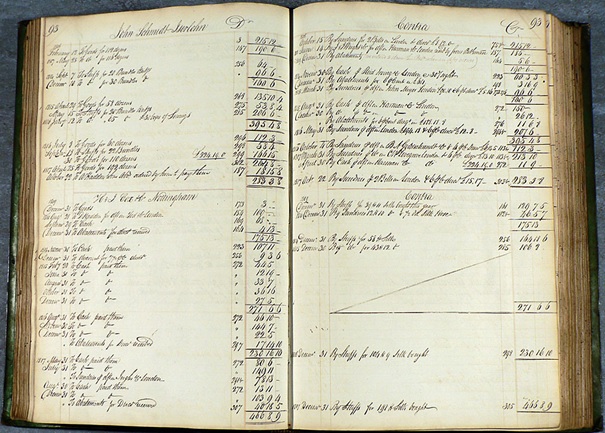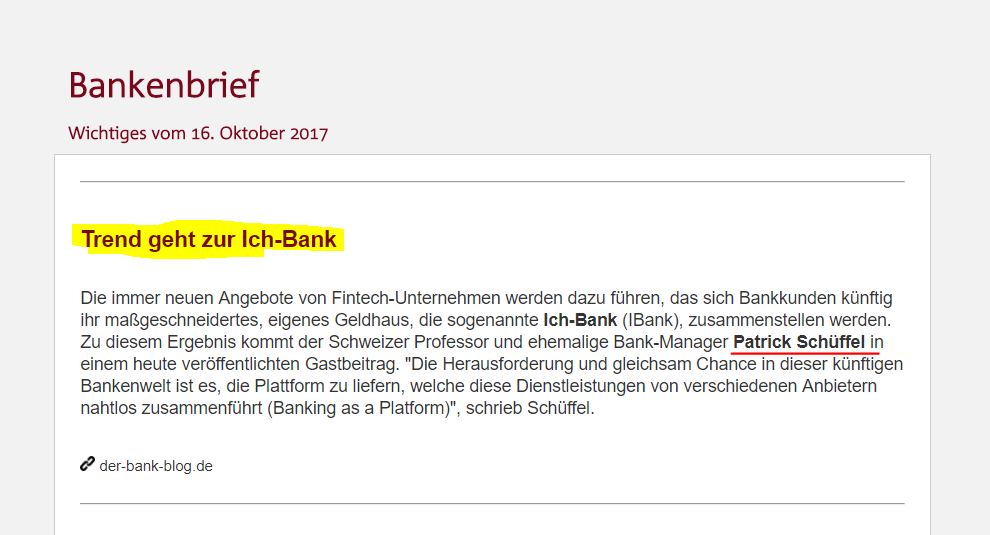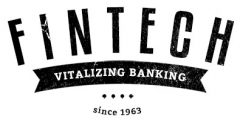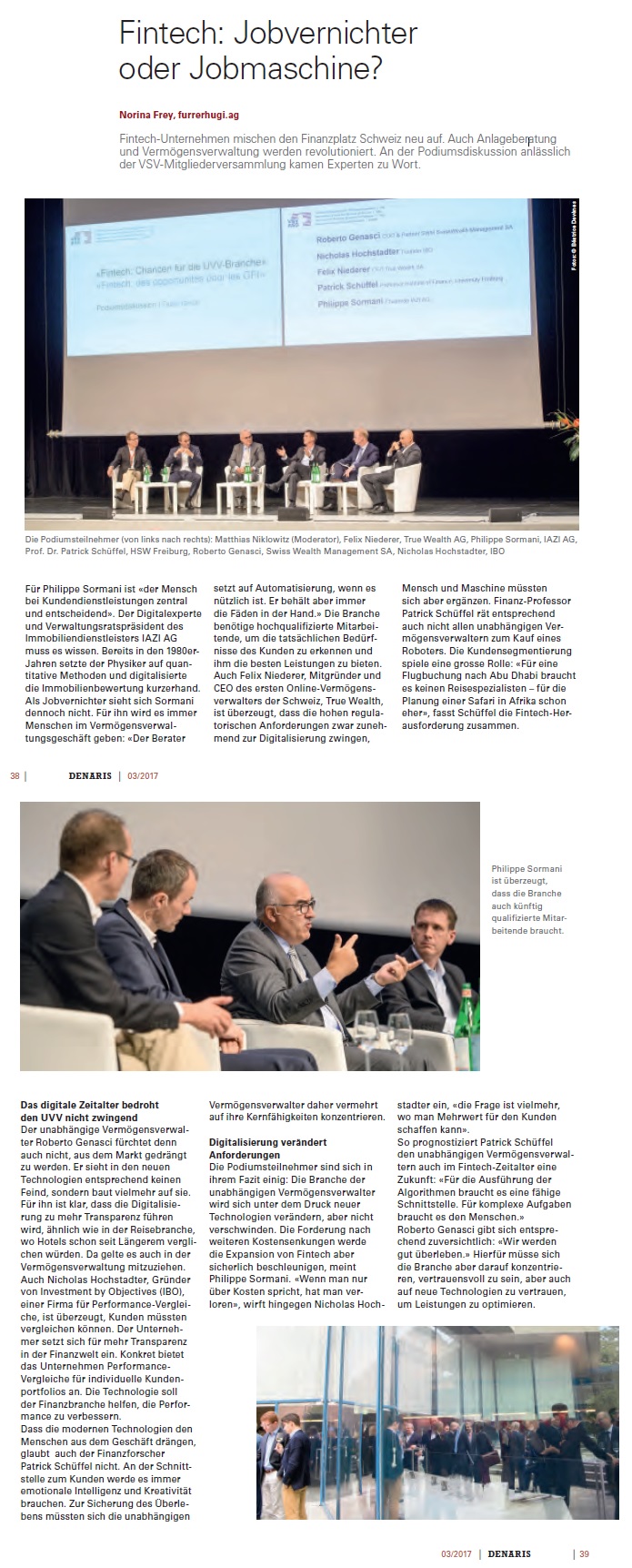 Seasoned private bankers often do not grasp the idea of the Blockchain. It was not until I understood that I was using the wrong vocabulary that I could convey what the Blockchain was all about.
Seasoned private bankers often do not grasp the idea of the Blockchain. It was not until I understood that I was using the wrong vocabulary that I could convey what the Blockchain was all about.
Have you even tried to explain the Blockchain concept to a seasoned private banker? Have you tried to describe the notion of a distributed ledger to this type of auditorium? And have you experienced the same result as I have over and over again: have you, too, just banged your head against a brick wall? I pondered the question why it was so much harder to explicate the concept to alleged banking experts than to first-year business students.
Use the right vocabulary
After numerous futile explanation attempts, it dawned on me. I was using the wrong vocabulary. Using the word ledger is counterproductive to the cause. When talking about a ledger, the traditional banker immediately translates that term into “bankbook” and that is the book in which the bank keeps all records of all customers adding and taking money from their bank accounts. It is thus the holy grail of private banking. Distributing the holy grail is inconceivable to many a private banker.
At that point it then hardly matters if you continue to explain that the users of the Blockchain are typically anonymized. It is almost futile to further explicate that, for instance, Bitcoin accounts are not tied to the identity of users and that anyone can create new and completely random Bitcoin accounts at any time, without the need to submit any personal information to any party. You have lost them already. Hence, what I found helpful in this situation is to refrain from using the term “ledger” altogether. Instead I call it distributed data base or distributed accounting system.
Give them a hands-on example
A friend of mine and design thinking pioneer, Michael Lewrick recently recommended me to do a hands-on exercise in particularly tough cases. Individually assign a random yet different number to every one of the ten bankers that are sitting in a room with you and have each of them note down their number and favourite colour on a separate sheet of paper. Have them pass on the paper to another participant and everyone repeats the exercise. Do so altogether ten times. In the end, everyone holds a list of 10 numbers and favourite colours in their hands. At this stage you can ask a) “What is Bob’s favourite colour?” – the others shouldn’t be able to tell as Bob’s identity has been anonymized. Yet you can also ask Bob, whether the correct colour is listed on his sheet – which should clearly be the case. And b) you can ask someone to now commit a “fraud”, i.e. to change the favourite colour of one participant – which should be nearly impossible unless the tasked fraudster does so on ten sheets of paper with the nine remaining group members agreeing. This exercise nicely explains some of the key features of the Blockchain and monies based thereon.
It’s worth trying
These two measures combined, using audience specific language and a hands-on exercise should therefore do the job. It certainly deserves a try. The Blockchain concept is too important as we could afford leaving private bankers behind. Happy explaining!
Dr. Patrick Schüffel, Professsor, Institute of Finance, Haute école de gestion, Fribourg Chemin du Musée 4, CH-1700 Fribourg, patrick.schueffel@hefr.ch, www.heg-fr.ch
 Link zum Bankbrief: hier
Link zum Bankbrief: hier

 Seasoned private bankers often do not grasp the idea of the Blockchain. It was not until I understood that I was using the wrong vocabulary that I could convey what the Blockchain was all about.
Seasoned private bankers often do not grasp the idea of the Blockchain. It was not until I understood that I was using the wrong vocabulary that I could convey what the Blockchain was all about.